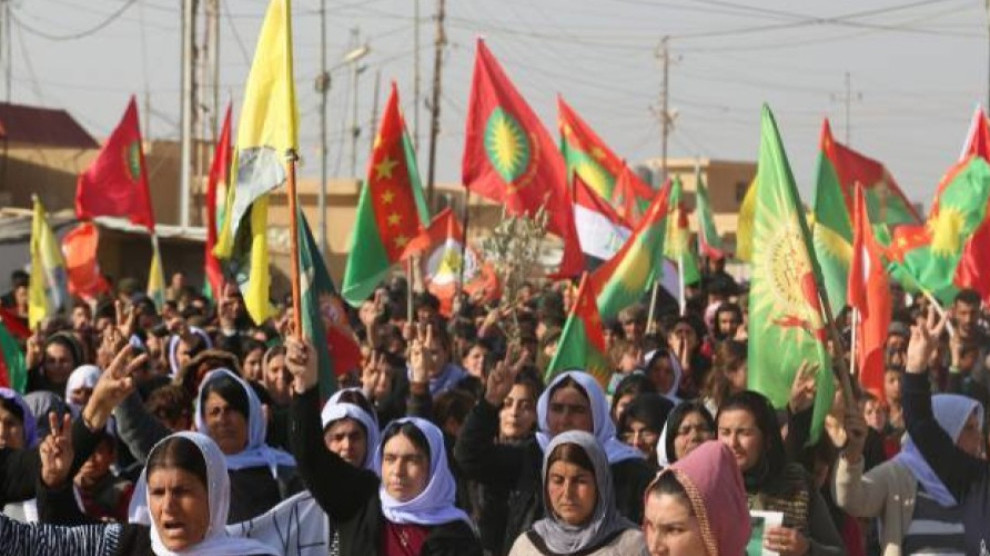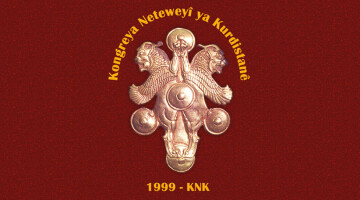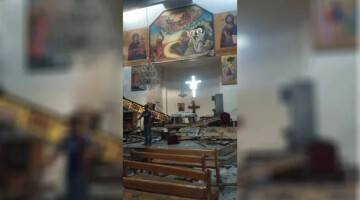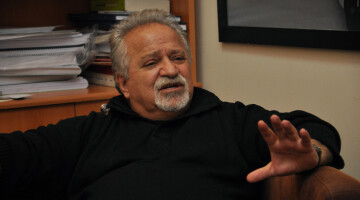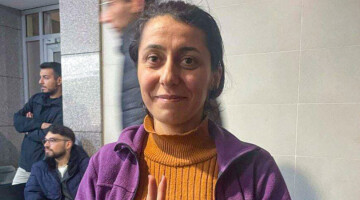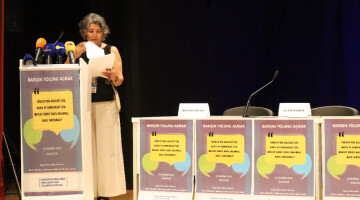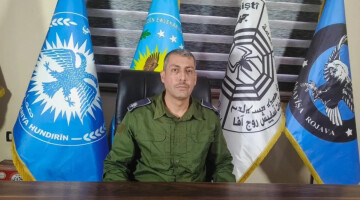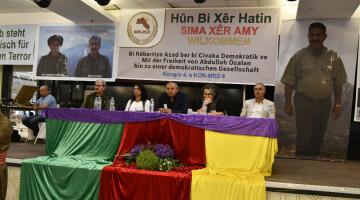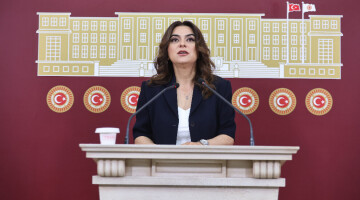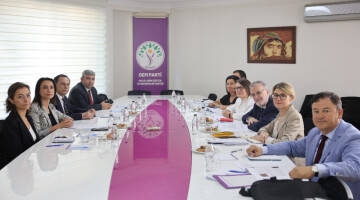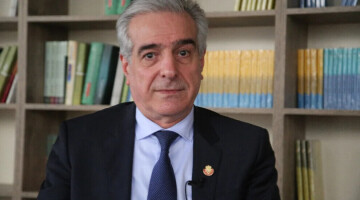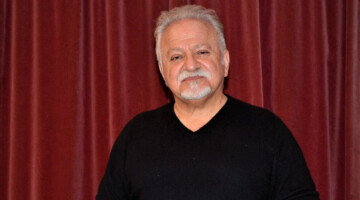Despite centuries of persecution, the Yazidis have preserved their culture and their history. The massacres against the Yazidi population took place by official order (Ferman) of the Ottoman Padishah. Since then the 74 organized waves of persecution and murder of Yazidis are called "Ferman".
The 74th Ferman was only six years ago and is one of the most terrible waves of persecution. On August 3, 2014 the ISIS invaded the region of Shengal, murdered, raped and sold women and girls on slave markets. The Yazidi Kurds remained resistant, defended themselves and expelled the ISIS from the Shengal region with the help of the People's and Women's Defense Units (YPG/YPJ) and the guerrilla force of the People's Defense Forces (HPG) and Free Women’s Troops (YJA-Star) But the attacks of the ISIS were followed by attacks of the Turkish state and its militias. In occupied Afrin, the Yazidis are acutely threatened.
Before the Turkish invasion, the Yazidi population led a life of brotherhood with the other people in Afrin. About 25,000 Yazidis lived in the villages of Îska, Şadirê, Xezewiyê, Birc Abdala, Eyn Dara, Tirindê, Qîbar, Kîmar, Basufan, Baiye, Qitmê, Sînka, Baflûn, Qastel Cindo, Elî Qîna, Feqîra, Qijuma, Qîlê, Aşka, Ceqela, Keferzît and in the district of Jindires. There were 19 Yazidi places of prayer in Afrin; Bairsa Xatûn, Şêx Hemîd, Şêx Xerîb, Cîl Xanê, Melek Adî, Şêx Cinêd, Şêx Berkat, Şêx Elî, Şêx Rikab, Şerefedîn, Bîla Menan, Pîr Cafîr, Birc Cindî, Ziyareta Hecera, Şêx Abdulqadir, Şêx Keras, Ziyareta Ebû Keiba and Şêx Qesab.
Suppression of the Yazidis under the Baath regime
The Yazidi population in Syria was already oppressed under the Baath regime. They lived under great economic, social and cultural problems and in permanent insecurity. The Yazidis were accused of separatism and were repeatedly arrested without any basis. Even speaking Kurdish and celebrating the holy holiday Çarşema Sor was prohibited. Lately it was even forbidden to sing in Kurdish. The Syrian government tried to register the Yazidi population as "Islamic" and to Islamize them. Those who refused were deprived of their citizenship rights. For this reason, the Yazidi Kurds could not lead a normal life at any time or place.
The life of te Yazidi women under self-government
The autonomous administration of Afrin explicitly recognized the rights of the Yezidi Kurds. In paragraph 33 of the social contract their rights were guaranteed constitutionally. Yazidi cultural associations and schools were established in the villages. The children were allowed to be taught according to the Yazidi faith. Holidays like Çarşema Sor were celebrated in public.
The horrors after the occupation of Afrin
Thus the Yazidis were able to lead a normal life for the first time under the autonomous administration. This life was ended with the Turkish invasion. On March 8, 2018, the Turkish state, together with its jihadist militias, marched into the city of Afrin and established a reign of terror, worse than in the darkest days of the Baath regime. From the first day until today, the occupying forces have been targeting the Yazidi population in particular, committing the worst crimes under the silence of the world public. The Turkish state had Yazidis murdered, destroyed their holy places and abducted many into its torture chambers. The fate of some of the Yazidis is still unknown today. They were wanted to be forcibly Islamized by all means. Those who do not submit to this policy of Islamization are exposed to violence and persecution.
Yazidis murdered because they did not deviate from their faith
For example, 66-year-old Omer Şemo was shot dead by the occupation forces when he refused to convert to Islam. Since the occupation of Afrin, twelve Yazidis have been murdered for this reason. 50 Yazidi women have been kidnapped. The Yazidi cemeteries and mausoleums were destroyed by the occupation troops. The Yazidi cemeteries of Şêx Xerîb, Qerecirnê, Barsêxaton, Şêx Hemîd, Şêx Cinêd, Ebdellrehman and Henan, the Yazidi cultural center, the statue of Zarathustra and a Yazidi library were completely destroyed. In Dara Izza, the large Yazidi cemetery was plundered in search of treasures. Yazidi facilities were demolished and Islamic facilities were put in their place. At the moment, 3,000 of the former 25,000 Yazidis still live in Afrin. They are all targets of repression and persecution.
"The Turkish state will not succeed"
Sûad Hiso, co-chair of the Yazidi Union, says the following about the situation in Afrin: "The world public is silent about the inhuman attacks. The ISIS abducted women and children from the Shengal region and murdered them. In this way, the Kurdish people are wanted to be exterminated. But it did not succeed. And neither will the Turkish state succeed."

